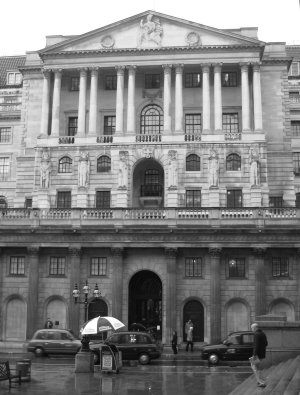September 2010 Commentary
 In an interview with Channel 4 News last night, Charlie Bean, Deputy Govenor of the Bank of England, explained that encouraging spending rather than saving was part of the point of monetary policy rather than a side effect of it. In an interview with Channel 4 News last night, Charlie Bean, Deputy Govenor of the Bank of England, explained that encouraging spending rather than saving was part of the point of monetary policy rather than a side effect of it.
He said:
"What we're trying to do by our policy is encourage more spending, ideally we'd like to see that in the form of more business spending but part of the mechanism that might encourage that is having more household spending so in the short term we want to see households not saving more but spending more."
The idea behind this comment is that if spending increases then demand for goods and services increases, therefore generating economic growth. Conversely if people save rather than spend, demand for goods and services drops thus reducing economic growth.
Charlie Bean went on to say that it was fine for people to dip in to their capital when rates are low to top up their income. He said:
"Savers shouldn't necessarily expect to be able to live just off their income in times when interest rates are low; it may make sense for them to eat into their capital a bit. Conversely of course when interest rates are high they might want to build that capital back up again."
Interestingly the Governor of the Bank of England receives more letters from savers complaining about interest rate cuts than they do from borrowers complaining about interest rate rises. The bank rate has been at 0.5% for eighteen months now. Whilst no one thinks the rate will stay at 0.5% for ever, it appears that low rates will be here for years rather than months.
Asked whether he thought that savers should get used to structurally lower levels of return on savings, Charlie Bean commented: "I certainly would not expect the level of the bank rate to stay very close to zero for a decade or more."
As a member of the Bank of England Monetary Policy Committee (MPC), Charlie Bean has a vote on the level of the bank rate each month. Fellow MPC member Andrew Sentance has voted for an increase in the bank rate by 25 basis points for the last four months. For him the risks of inflation outweigh the risks to economic growth, but for the moment he remains the lone voice voting for a rate rise. Therefore companies and individuals will need to work hard to earn a good return on their cash.
| 
